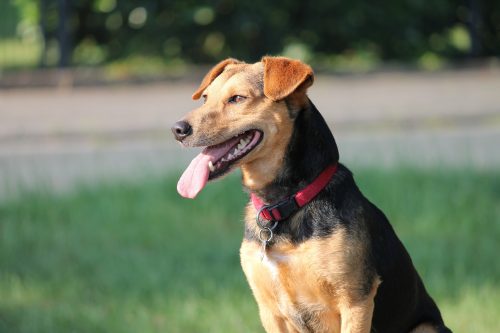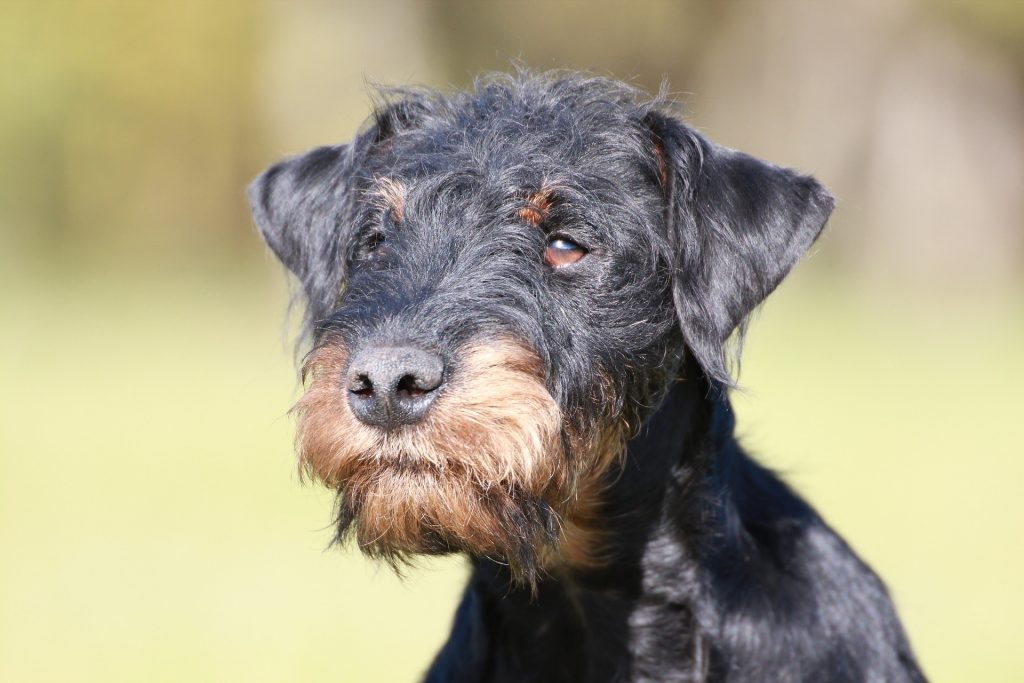Has your dog been licking or chewing his own body, resulting in painful-looking sores? Your dog has most likely developed hotspots: moist, reddish sores typically found on a dog’s head, hip, and chest.
But just where do hotspots come from, and are they contagious? Read on for the answers to your burning questions about hotspots on dogs.
What are hotspots?
Hotspots are a condition involving an area of the skin that has become inflamed or infected. Also known as “superficial canine pyoderma” or “acute moist dermatitis”, hotspots appear as localized red sores. The skin appears red and moist—often from itching, licking, or biting—and can cause your dog a lot of pain if not treated early on.
Are hotspots on dogs contagious?

Because of their appearance and propensity to grow, it is common for pet owners to question if hotspots are contagious to other dogs — even humans. While these sores can appear and spread quickly, the most common hotspots — caused by bacteria — are not contagious to other dogs, or humans.
Watch out for hotspots caused by scabies or fungal infections, though. Unlike those caused by bacteria, fungal hotspots can spread to humans and other dogs on contact.
The only way to tell if the hotspots on your dog are bacterial or fungal is to have your vet run a culture of the skin scraping.
What causes hotspots?
Often called summer sores, hotspots are more common in hot temperatures. A hotspot can sprout from any irritant to the skin, made worse by scratching, licking, and biting.
Common triggers for itchy skin in dogs include:
- Food allergies
- Allergies to grass, weed, or dust mites
- Insect bites: fleas, ticks, or mosquitos
- Improper grooming
- Conditions such as hip dysplasia or anal gland disease
Are some dogs more prone to hotspots than others?
All dogs can develop hotspots, regardless of breed. But dogs who are not groomed regularly—specifically thick-coated, longhaired breeds—are more likely to develop them than others.
The following dogs are also more prone to hotspots than others:
- Dogs with matted, dirty coats
- Dogs who swim or are exposed to the rain
- Dogs with hip dysplasia or anal sac disease that lick the skin on their rear ends excessively
How do I treat hotspots?

If you suspect your dog has hotspots, visit your vet as soon as possible. Determining whether the hotspot is bacterial or fungal is imperative to ensure it does not spread.
Your vet will help you diagnose the spots, and also rule out any other possible canine skin conditions. If it is determined that your dog has hotspots, your vet will most likely prescribe a topical antibiotic and anti-inflammatory for treatment. It is also very important to identify and get rid of possible triggers.
In addition, your vet may prescribe the following treatment plan:
- Clip the hair around the hotspot to allow for clean, easy application of the medication
- Clean the affected area with a mild astringent or antiseptic. Pat dry.
- Apply the prescribed antibacterial creams and ointments to kill the bacteria
- Administer analgesics, if necessary, to reduce pain, fever, and inflammation
- Administer any oral antibiotics prescribed by your vet. Be sure to complete the full course.
- Apply antihistamines, if prescribed, to help calm itchiness
- If prescribed, administer corticosteroids from your vet to relieve any pain or itching
- Reduce the possibility of contact with the area by dressing your dog with an Elizabethan Collar
- Observe the affected area. Make sure it stays dry in order to heal.
How can I make my dog more comfortable?
Hotspots are as uncomfortable for your dog as they are to look at — if not worse. If you are concerned about easing the pain, itchiness, or irritation for your dog, talk to your vet. He or she will be able to prescribe treatment. In addition, as tempting as it is to itch a scratch, the Elizabethan Collar will help reduce irritation from licking, biting, or scratching for proper healing.
How can I prevent hotspots on my dog?
Hotspots can be prevented by first identifying the underlying cause, as well as with these tips:
- Maintain proper grooming of your dog by clipping his hair—especially in hotter months
- Watch for fleas or any other insects that may affect your dog
- Observe and treat any allergies in your dog
- Ensure your dog gets regular exercise to reduce boredom




